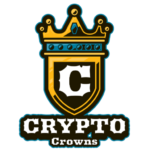
Finance as we know it is undergoing a profound shift. For decades, the ownership of finance has resided in the hands of banks and other institutions. Now, a paradigmatic shift away from traditional financial institutions promises to provide more democratic ownership of finance in the digital world, all thanks to decentralized finance (commonly referred to as ‘DeFi’).
The intricacies of DeFi’s nature and underlying technologies are complex but, in this article, we want to share an in-depth discussion covering the core concepts, potential merits and drawbacks, and the future that it holds for our ever-evolving world of finance.
The Promise of DeFi: A Glimpse into a Decentralized Future
Think of the purchase of an expensive in-game item for your favorite online game, or the placing of a bet on an online casino. These are all just some ways in which the DeFi layer can be created on top of online gaming, specifically online casino gaming.
The gambling industry has already been changed by DeFi. When diving into online casino real money, players must take advantage of reliable deposit methods, which nowadays, range from fiat to cryptocurrency payments. With decentralized finance, players can be more confident in fast and transparent transactions stored on a public ledger. Thanks to DeFi, the gamer could deposit crypto to play – experiencing the bonuses of security and transparency on the DeFi protocol itself (and, potentially, lowering the transaction fee).
The Building Blocks of DeFi: Blockchain and Smart Contracts
The acronym DeFi stands for Decentralised Finance. Finance as we know it is centralized, depending on banks and brokerage firms that separately mediate and control our transactions. By contrast, everything about DeFi is decentralized and peer-to-peer (P2P), made possible by blockchain, an unhackable distributed ledger of data. This ground-breaking technology removes the need for intermediaries between transacting parties. This technology is powered by two very important things:

Blockchain Technology: Blockchain is the backbone of DeFi, where each cryptocurrency-based transaction and every piece of information is recorded on the blockchain. In each blockchain, data are stored in groups, with each group linked to the previous one. New information is added to a blockchain only when the previous one is verified, creating a secure and tamperproof code. Once a block is added, it cannot be erased.
Smart Contracts: Open-source contracts programmed on the blockchain can automate agreements involving two or more parties while mitigating counterparty risks, without any central regulator or third-party settlements.
A World of DeFi Products and Services
The instruments and services of DeFi make possible what could only previously be done with traditional institutions. Some of the most important are:
Decentralized exchanges (DEX): Peer-to-peer exchanges where users traded cryptocurrencies directly between themselves, ownership of assets always remained with the user (as opposed to a proprietary exchange), and therefore fees, which were essentially lip service to the exchange more than anything, could potentially be even lower.

Peer-to-peer cryptocurrency lending and borrowing: DeFi protocols provide support to these activities by enabling users to act as lenders who can earn on their holdings, or enable borrowers to borrow crypto on favorable terms.
DeFi Insurance: because distributed finance (DeFi) is standard, users are able to access insurance policies that are otherwise hard to negotiate, as these insurance companies can leverage smart contracts with automated algorithms that process claims, which is part of a cost savings package (vs not using distributed software).
The Advantages of DeFi: Transparency, Accessibility, and Innovation
DeFi, at least in the way it is currently evolving, offers a compelling vision for a more inclusive and accessible financial system.
Blockchain is super transparent as every transaction is ‘on the blockchain’ – this means that everyone can take a look and verify each payment – once a transaction is recorded, it cannot be reversed or modified. DeFi also democratizes access and allows for global financial participation, thereby giving a voice to those excluded from formal financial services.
Since DeFi operates on a decentralized network, services on that network cannot be censored or controlled by a single entity. Users of DeFi can, thereby, enjoy having greater control over their assets. Not to mention the spirit of innovation, in part because DeFi is open source and, in part, due to its largely budget-free structure. Developers are continually inventing new applications and testing new possibilities for DeFi.
The Future of Finance: A Decentralized Horizon?
But what the future of DeFi looks like seems anything but set in stone. As the technology matures, as users get more comfortable with it and regulations are established, DeFi could very well point the way toward a better and more equitable future for the financial system.
DeFi remains in its early adoption stages and the future is not so certain, but the possibilities are enticing: a financial future where users gain more control over their funds, financial services become more accessible, and innovation increases the efficiency of financial services while enhancing financial transparency.


